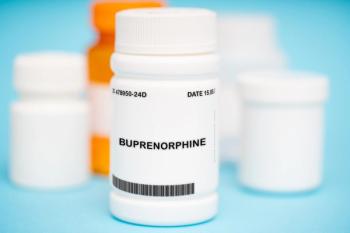
Lawsuit alleges fatal paregoric mix-up
A lawsuit was filed alleging that a Connecticut woman died after a CVS pharmacist dispensed opium tincture instead of camphorated opium tincture (paregoric).
COMMUNITY PRACTICE
Lawsuit alleges fatal paregoric mix-up
The family of a Connecticut woman has filed a lawsuit alleging that she died because a community pharmacist dispensed opium tincture instead of camphorated opium tincture, which is commonly known as paregoric.
Donna Marie Altieri's physician wrote a prescription for one teaspoon of "tincture of opium camphorated" for her chronic diarrhea last June 15. The 51-year-old grandmother took the Rx to a CVS drugstore in Southington, where it was filled. However, the script was misfilled with opium tincture, which contains 25 times as much morphine as paregoric. The next day, she took one dose then complained of feeling weak, tired, and achy and went to sleep. She never woke up.
An emergency room physician said Altieri probably died of a heart attack. One of her two sons found that hard to believe and became suspicious. He asked for an autopsy. Two months later, the coroner ruled her death was due to accidental morphine intoxication.
The Altieri brothers have filed a lawsuit against the CVS pharmacy and pharmacist, said Michael D'Amico, a Watertown attorney. He said the suit seeks "substantial" damages.
CVS did not respond to a request for comment.
D'Amico does not anticipate that there will be a suit against the physician who wrote the prescription. He does not feel that the doctor was culpable for writing the script as tincture of opium camphorated instead of paregoric.
"The primary culprits are the pharmacy and the pharmacist," D'Amico said. "Had there been appropriate safeguards and training in place, this would not have happened. I am aware that CVS is claiming that the physician is responsible for not having written the name paregoric on the prescription. The prescription was correctly written in terms of the technical name of the medication. The prescription was clearly legible, and there was no question about it being able to be read."
One of this case's take-home lessons for pharmacists is to not ignore drug alerts, said D'Amico. Noting the crush of filling Rxs, he added, "Perhaps alerts need to be more selective in terms of when they appear, or maybe it requires the pharmacist to spend the time to think about the alert without mechanically hitting the button to disregard it. Making sure pharmacists are aware of how important those alerts are is a matter of constant training."
"Because of the pace at which pharmacists have to work and perhaps some push from employers to fill as many prescriptions as possible can lead pharmacists to believe that they are retail clerks," he said. "They are professionals; the last interface between a potentially fatal medication and the patient. They should also take their time when filling a prescription. It sounds like common sense, but rushing from one script to the next makes it easy to not carefully examine the prescription being given."
The Altieri case caught the attention of the Institute for Safe Medication Practices, which has issued several warnings about mix-ups involving opium tincture and paregoric. The group offered these tips to prevent medication errors:
Place poison labels on all containers of opium tincture as well as a label stating the strength of morphine per milliliter (10 mg/ml). Included on the label should be the message: "WARNING! DO NOT use opium tincture in place of paregoric."
Build alerts into the computer software to warn staff about the differences between the two products. Include appropriate dose ranges by weight and volume, and, if possible, build in a high-dosage warning.
Place auxiliary warning labels in pharmacy storage locations.
Dispense opium tincture only in a small dropper bottle or unit-dose packaging. In institutions, dispense it for individual patients only. Do not store it as a floor stock item or in automated dispensing units.
Carol Ukens
Carol Ukens. Lawsuit alleges fatal paregoric mix-up.
Drug Topics
2002;6:21.
Newsletter
Pharmacy practice is always changing. Stay ahead of the curve with the Drug Topics newsletter and get the latest drug information, industry trends, and patient care tips.























